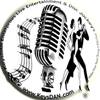Music of Jamaica
Kumina - Niyabinghi - Mento - Ska - Rocksteady - Reggae - Sound systems - Lovers rock - Dub - Dancehall - Dub poetry - Toasting - Raggamuffin - Roots reggae
Anglophone Caribbean music
Anguilla - Antigua and Barbuda - Bahamas - Barbados - Bermuda - Caymans - Grenada - Jamaica - Montserrat - St. Kitts and Nevis - St. Vincent and the Grenadines - Trinidad and Tobago - Turks and Caicos - Virgin Islands
Sound samples
Other Caribbean music
Aruba and the Dutch Antilles - Cuba - Dominica - Dominican Republic - Haiti - Hawaii - Martinique and Guadeloupe - Puerto Rico - St. Lucia - United States - United Kingdom
Toasting, Chatting, or Deejaying is the act of talking or chanting over a rhythm or beat. The lyrics can be either improvised or pre-written. Toasting has been used in various African traditions, such as griots chanting over a drum beat, Jamaican music forms, such as dancehall, reggae, ska, dub, and lovers rock. Toasting's mix of talking and chanting may have influenced the development of rapping in US hip hop music. The combination of singing and toasting is known as singjaying.
Traditional African American toasting
Toasting has been part of African American urban tradition since Reconstruction as part of a verbal art tradition, dating back to the griots of Africa. African American stories usually lauds the exploits of the clever and not entirely law-abiding trickster hero (not always human) who uses his wits to defeat his opponents[citation needed].
Toasters continue the oral tradition by recounting the legends and myths of the community in venues ranging from street corner gatherings, bars, and community centers, to libraries and college campuses. As with oral traditions in general, and with other African American art forms as the blues, toasting uses a mixture of repetition and improvisation[citation needed].
There are many versions of the best-known toasts, often conflicting in detail. Historically, the toast is very male- oriented, and many toasts contain profane or sexual language, although more family-oriented versions also exist[citation needed].
Well known toasts include "Shine and the Titanic", "Dolemite", "Stack O Lee", "Jo Jo Gun," and "Signifyin' Monkey."
Signifying
Jamaican toasting
In the late 1960s and early 1970s a strain of Jamaican music called deejay toasting was developed. Deejays working for producers would play the latest hits on traveling sound systems at parties and add their "toasts" or vocals to the music. These "toasts" consisted of boastful commentaries, chants, half-sung rhymes, rhythmic chants, squeals, screams, and rhymed storytelling.
Osbourne Ruddock (aka King Tubby) was a Jamaican sound recording engineer who created vocal-less rhythm backing tracks that were used by DJs doing "toasting" by creating one-off vinyl discs (also known as dub plates) of songs without the vocals and adding echo and sound effects[citation needed].
Late 1960s toasting deejays included U-Roy and Dennis Alcapone, the latter known for mixing gangster talk with humor in his toasting. In the early 1970s, toasting deejays included I-Roy (his nickname is an homage to U-Roy) and Dillinger, the latter known for his humorous toasting style. In the late 1970s, Trinity became a popular toasting deejay.
The 1980s saw the first deejay Toasting duo, Michigan & Smiley, and the development of toasting outside of Jamaica. In England, Pato Banton explored his Caribbean roots humorous and political toasting and Ranking Roger of the "Second Wave" or Two-Tone ska revival band The Beat from the 1980s did Jamaican toasting over music that blended ska, pop, and some punk influences.
The rhythmic rhyming of vocals in Jamaican deejay toasting influenced the development of rapping in African-American hip-hop, and the development of the Dancehall style. (e.g., hip-hop pioneer and Jamaican ex-patriate DJ Kool Herc and Phife Dawg of A Tribe Called Quest). Jamaican deejay toasting also influenced various types of dance music, such as jungle music, and UK garage. Dancehall artists that have achieved pop hits with toasting-influenced vocals include Shabba Ranks, Shaggy and Sean Paul. Another up and coming Jamaican Toasting star is Damian Marley, son of reggae legend Bob Marley.
Sponsors
http://conwayyellowcab.com/
http://djlittlerock.com/
http://keysdan.com/
http://mybusinessneedshelp.com/
http://radiokeysdan.com/
http://radiowhat.com/
http://keysdan.com/DJLittleRock.com/
http://keysdan.com/HollandAR.org/
http://keysdan.com/JustTryItKaraoke.com/
http://keysdan.com/RadioKeysDAN.com/
http://keysdan.com/RadioWHAT.com/
http://keysdan.com/MyRadioExito.com/
http://keysdan.com/RadioRitmoLaFabulosa.com/




